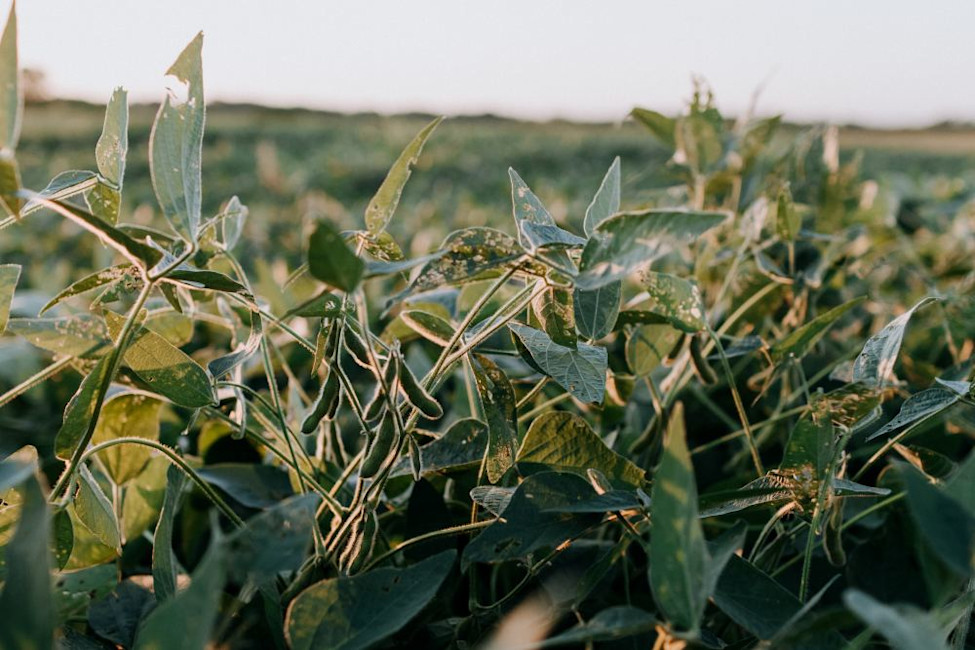
Amazon Soy Moratorium
Statement Overview
A coalition of investors and corporates, representing US$3 trillion in assets, urged the Brazilian Government to uphold the 2006 ‘Amazon Soy Moratorium’; to ensure soy production in the Amazon region only occurs on agricultural land, not through deforestation of native vegetation. Since its implementation, soy-related deforestation has decreased while Amazonian soy production has increased by 400%, showing that agricultural output can be increased while protecting tropical forests. In 2021, 100 countries and investors representing US$8 trillion in AUM committed to ending deforestation globally.

Investor Statement
The Amazon is fundamentally important to life on our planet. It hosts over 10% of all biodiversity and promotes climate stability through its role as a carbon sink. It also plays a vital role in regulating rainfall, which is essential for agriculture – both within Brazil and beyond.
Brazil is one of the world’s major producers of soy. In 2006, a vital agreement known as the Amazon Soy Moratorium (ASM) was established to ensure that soy production in the Amazon region only occurs on existing agricultural land. Since then, soy production in the Amazon has increased 400%, showing that forest protection and agricultural expansion can be compatible.
We, the undersigned global investors and companies who buy/use Brazilian soy, commend the leadership of Brazilian soy stakeholders in achieving this progress. However, deforestation in the Amazon from other causes (mostly cattle ranching) has continued to grow. Brazilian Government data recently published shows that, since 2012, it has increased from 460 thousand hectares to almost 1 million in the last year.
These deeply concerning figures reinforce the importance of continuing to uphold the ASM. Yet some parties are now questioning whether it should continue.
Our position is clear: we want to be able to continue to source from, or invest in, the Brazilian soy industry but if the ASM is not maintained, this will risk our business with Brazilian soy. Today, there is enough existing agricultural land to continue to increase soy production in the Amazon by an additional 600% compared to current figures. We look forward to supporting Brazilian partners to continue their leadership and show that economic development and environmental protection can go hand in hand
Signatories
2 Sisters Food Group
ACTIAM
Ahold Delhaize
Aegon Asset Management
AIC (Agricultural Industries Confederation)
ALDI SOUTH Group • Alliance pour la Préservation des Forêts
AP1
AP2
AP3
AP4
AP7
Aquascot Ltd
Asda Stores Ltd.
Avara Foods
Barber’s
Belgian Feed Association (BFA)
BioMar
BMO Global Asset Management
Bremnes Seashore AS
British Retail Consortium (BRC)
Candriam
Carrefour
Cermaq
Congregation of Sisters of St. Agnes
Cranswick Plc
Dominican Sisters ~ Grand Rapids
Duralim
Dutch Food Retail Association (CBL)
EdenTree Investment Management Ltd
Environment Agency Pension Fund
FAIRR
Green Century Capital Management, Inc.
Grieg Seafood ASA
Hermes Investment Management
Hilton Food Group
Iceland Foods Ltd
Iceland Seafood Barraclough Ltd
Inter IKEA Group
Joseph Rowntree Charitable Trust
JLens Investor Network
J Sainsbury Plc
Kerry Group
KLP
Lantmännen ek för
Legal & General Investment Management
Lerøy Seafood Group ASA
Lidl GB
Lyons Seafoods
Mars Inc
Marks and Spencer
METRO AG
Mowi ASA
Moy Park
Multiexport Foods
National Pig Association (UK)
Nordlaks Oppdrett AS
NorgesGruppen ASA
NN Investment Partners
Nor-Feed SAS
Norvida AB
Nova Sea AS
Öhman
Pax World Funds
Picard Surgelés
Princes Ltd
REWE Group
Robeco
Scottish Sea Farms
Skandia
Seventh Generation Interfaith Inc
Storebrand Asset Management
Strathclyde Pension Fund
Swedbank Robur Fonder AB
Tesco Stores Plc
The Co-operative Group
The Polden Puckham Charitable Foundation
Trusteam Finance
Tulip Ltd
Valorex
Waitrose & Partners
Winterbotham Darby & Co Ltd.
Wm Morrison Supermarkets Plc
Yeo Valley
Zevin Asset Management